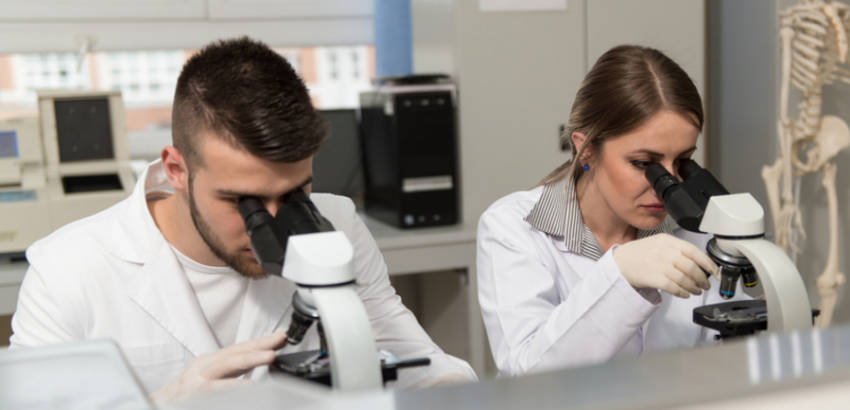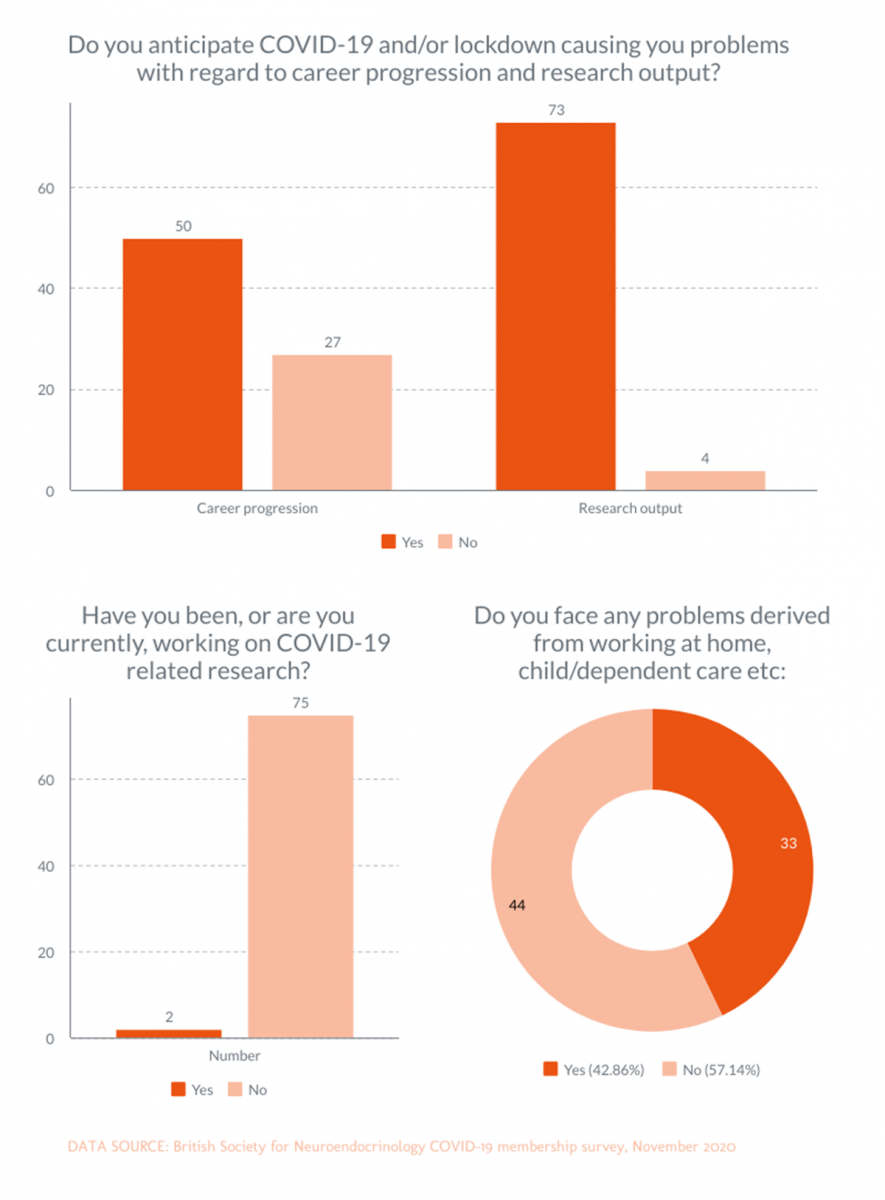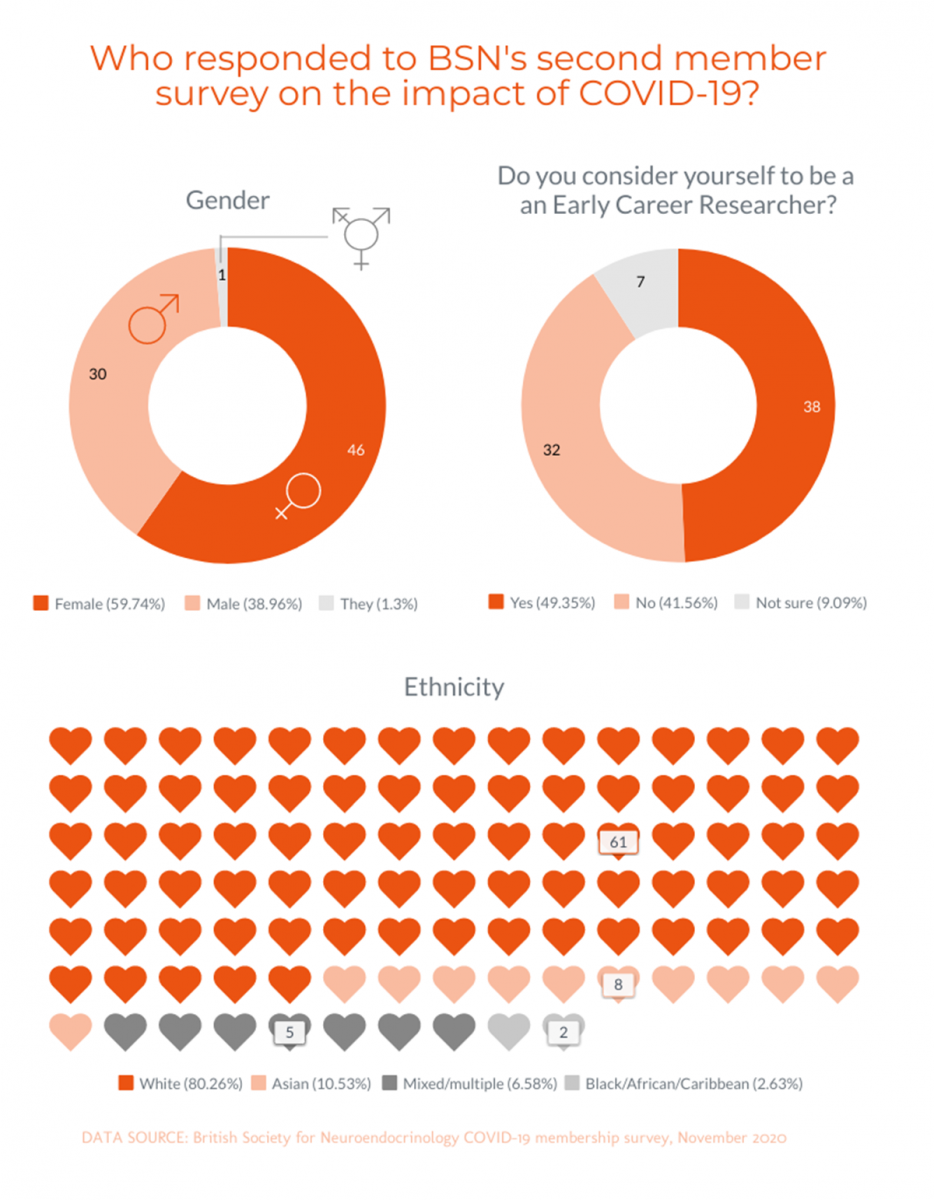
Results from our second membership survey on impacts of COVID-19
"The greatness of a community is most accurately measured by the compassionate actions of its members."
– Coretta Scott King, American author, activist, civil rights leader, and the wife of Martin Luther King Jr.
In April 2020 we surveyed our members about the impact of COVID-19 on work and life. Using the responses from this first survey we created a new COVID-19 support grant. The pandemic has continued since April and we recently surveyed members about the impacts of COVID-19 for a second time to establish what - at this time of the pandemic - are the biggest challenges you face, and what support you need from us. Again, we will use the responses to create a COVID-19 support grant to be released in January 2021. The grant will be open to all BSN members this time and focus on helping you complete the scientific research that will further your career and the field of neuroendocrinology.
We will also be opening up our Project Support Grant in January 2021 which provides funding of up to £7000 for consumables/other research costs to enable postdoctoral researchers and students who are full members to carry out the best possible neuroendocrine research project.
Second COVID-19 membership survey results
Thank you to all who responded to this second survey – it is clear the pandemic is creating a difficult environment for all of us personally and professionally. Survey responses fell into several broad categories:
- Problems relating to lab closures in early 2020 mean that lab work has been delayed without extra funds to complete the work, animals were culled and there is now a shortage making it difficult to do research, lab COVID-19 safety precautions are causing anxiety and mean work is slow, completing projects without extra funding will be difficult and therefore impact careers and publication especially for ECRs
- Financial concerns with increased prices for reagents, difficulty getting funding and the prospect of unemployment
- Clinical research is difficult as collecting samples and recruiting participants from hospitals is now difficult, and non-COVID-19 health facility closures also cause problems
- Remote teaching has created extra workload on top of working from home and unreliable working conditions and impacted research outputs
- Inability to plan long-term experiments and training
We also asked about more personal issues, such as the impact of working from home and any childcare related difficulties. Responses from these questions fell into the following categories:
- Personal difficulties such as feelings of stress from managing an increased workload while working from home, online and without childcare; isolation and reduced productivity from not being able to meet up with colleagues; anxiety due to all promotions being cancelled for 2021 and the uncertainty of funding impacting future employment and career
- Issues related to working from home including productivity loss from working with interruptions and during unsociable hours or with reduced hours due to lack of childcare; home office working not being conducive to productive work due to using a borrowed computer, sharing an office with another member of the household, and too many distractions; difficulties connecting with people meaningfully through online meetings make collaborations difficult.
We will be running another early career researcher (ECR) Summer webinar series in 2021 to provide a forum for ECRs to present their research and network. Whilst we are unable to solve these personal issues directly we are looking at how we can assist with certain aspects. If you are struggling with personal issues we would recommend that you make contact with local support which your home institution should be making available to you.
The following charts show the responses to questions on the impact of COVID-19 and lockdown and whether respondents worked on COVID-19 related research (Data written out below for accessibility):

Who answered the survey?
The 77 survey respondents were broadly representative of the membership, with a slightly higher proportion of female respondents and lower proportion of early career researcher respondents as compared to the membership. The following infographic shows the breakdown of respondents by gender, ethnicity and whether they considered themselves early career researchers (Data written out below for accessibility):

Have a restful holiday
Thank you again for all your responses. We are working to pull together the next COVID-19 grant for release in January 2021. At the BSN, we are proud of our supportive, welcoming community. If there is anything else you feel we could do to support you - our membership - during this difficult time, please do get in touch: theteam@neuroendo.org.uk.
We hope you are able to rest during the Christmas holidays and we will be in touch in the New Year with the next COVID-19 grant.
Gender:
- Male 30 (39%)
- Female 46 (59.7%)
- Prefer they 1
Ethnicity:
- White 61 (80.3%)
- Asian 8 (10.5%)
- Mixed/multiple 5 (6.6%)
- Black/African/Caribbean 2 (2.6%)
ECR:
- Yes 38 (49.4%)
- No 32 (41.6%)
- Not sure 7 (9.1%)
Do you anticipate COVID-19 and/or lockdown causing you problems with regard to…
Career progression:
- Yes 50 (65%)
- No 27
Research output:
- Yes 73 (95%)
- No 4
Do you face any problems derived from working at home, child/dependent care etc:
- Yes 33 (42.9%)
- No 44 (57.1%)
Have you been, or are you currently, working on COVID-19 related research:
- Yes 2 (2.6%)
- No 75 (97.4%)

